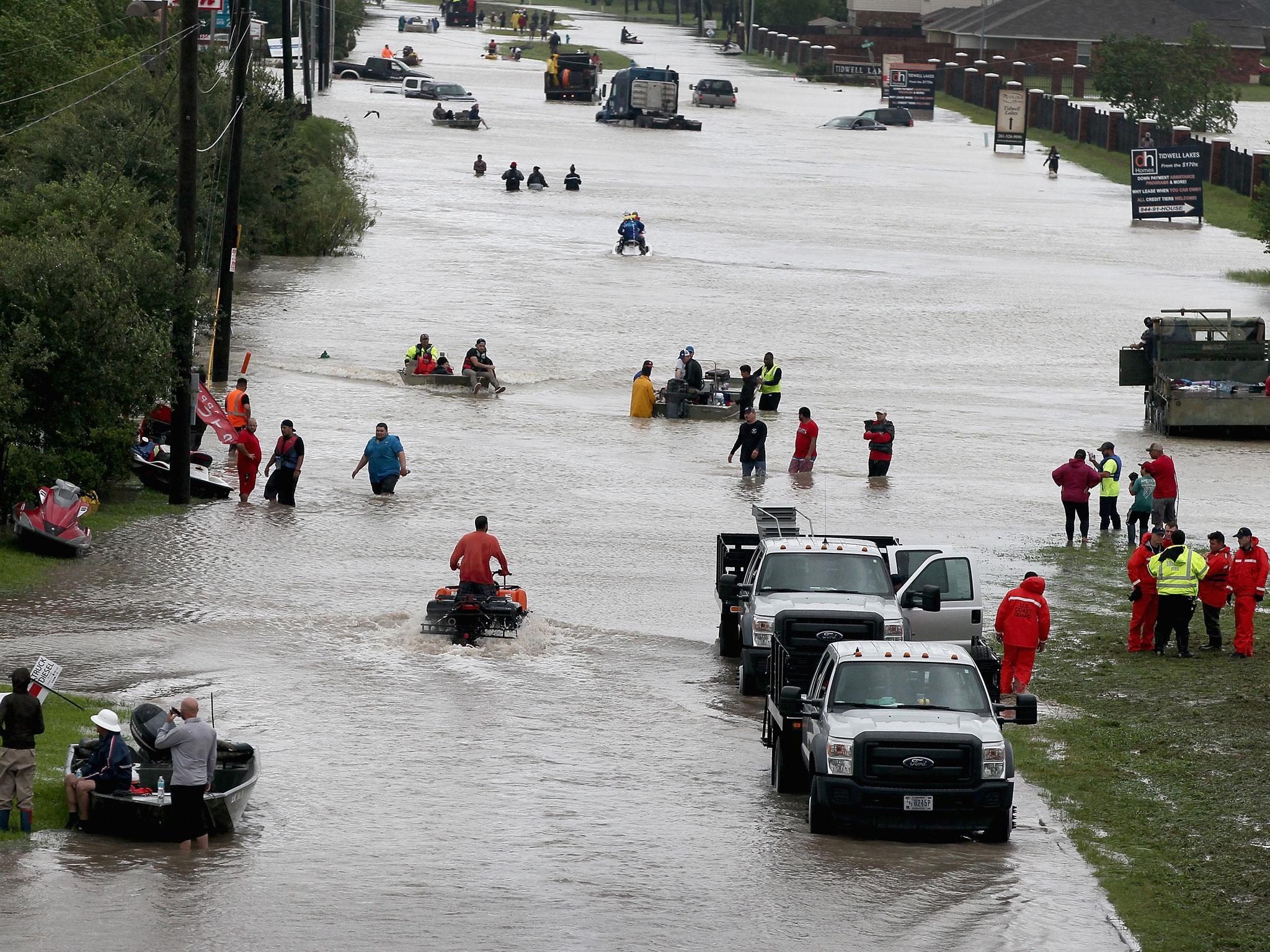Majority of Americans now believe climate change makes hurricanes more intense, poll finds
Hurricane Harvey 'was not caused by climate change, yet its impacts - the storm surge and especially the extreme rainfall - very likely worsened due to human-caused global warming'

A majority of Americans say that global climate change contributed to the severity of recent hurricanes in Florida and Texas, according to a new Washington Post-ABC News poll.
That marks a significant shift of opinion from a dozen years ago, when a majority of the public dismissed the role of global warming and said such severe weather events just happen from time to time.
In a 2005 Washington Post-ABC poll, taken a month after Hurricane Katrina ravaged the Gulf Coast and devastated New Orleans, 39 percent of Americans said they believed climate change helped to fuel the intensity of hurricanes. Today, 55 percent believe that.
The shift may in part reflect scientists' increasing confidence - and their increasing amount of data - in linking certain extreme weather events such as hurricanes to climate change. Many researchers have been unequivocal that while hotter oceans, rising seas and other factors are not the sole cause of any event, the warming climate is contributing to more intense storms and more frequent, more crippling storm surges and flooding.
"[Hurricane] Harvey was not caused by climate change, yet its impacts - the storm surge and especially the extreme rainfall - very likely worsened due to human-caused global warming," Stefan Rahmstorf of the Potsdam Institute for Climate Impact Research said in a statement after the hurricane.
In a follow-up email to The Washington Post last month, Rahmstorf said that the explanation is just basic physics: The atmosphere holds more water vapor when it is warmer, setting the stage for more rain.
Yet for many Americans, the role of climate change has become as much about political beliefs as scientific findings.
Over the past decade, Democrats and independents accounted for most of the growing percentage of Americans who said climate change was a culprit in the intensity of hurricanes. While fewer than half of Democrats said climate change was a significant factor behind Hurricane Katrina in 2005, that figure rose to 78 percent this month after hurricanes Harvey and Irma. Similarly, 42 percent of independents saw climate change as contributing to the severity of hurricanes in 2005 - a season in which hurricanes Rita and Wilma also hit the United States - while 56 percent now do.
By contrast, attitudes among Republicans have hardly changed over the same period. About 72 percent currently say that the severity of recent storms was merely the result of the kind of intense weather events that materialize periodically. In 2005, 70 percent had that view.
Younger adults are much more likely to attribute a role to climate change in the intensity of major storms, and their opinions appear to have shifted sharply over the past decade or so. The new poll finds that 67 percent of adults younger than 30 say climate change contributed to the recent hurricanes' power, as do 64 percent of those in their 30s. Meanwhile, only about half of Americans ages 40 to 64 say that. The percentage is lower still for people older than 65.
Despite the damage their states suffered, the Post-ABC poll finds that residents in Texas and Florida appear more skeptical of linking climate change and a storm's punch than Americans nationally. The poll included 134 respondents living in one of the two states, and just under half say the severity of the recent hurricanes was typical. Forty-four percent say their intensity was made worse by Earth's changing climate.
The Washington Post-ABC News poll was conducted Sept. 18-21 among a random national sample of 1,002 adults reached on cellular and landline phones. The margin of sampling error for overall results is plus or minus 3.5 percentage points.
Washington Post
Join our commenting forum
Join thought-provoking conversations, follow other Independent readers and see their replies
Comments
Bookmark popover
Removed from bookmarks